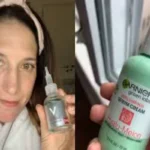Dangerous Diets and Their Impact on Hormone Balance
Your body is like a sports car: with the right care, it lasts a long time and performs at top level. If you give it balanced, high-quality nutrition and doctor-prescribed supplements, you’ll love what happens.
Unfortunately, people often look for a quick fix. A good example is fad diets: trendy pop-up eating plans promising miraculous results, requiring only a few ingredients. Unsupported with scientific data and research, such diets often result in malnutrition, hormone imbalance, irreversible damage, and even death.
How Good Nutrition Benefits Hormone Balance and Health
The main purpose of food for your body is to provide fuel for energy and raw materials for repair and maintenance. Hormones are the chemical messengers that organize all the work.
What Happens When You Eat Too Little?
Fat is not the focus. You’re tired all the time because your body systems can’t communicate. Being undernourished is chronic mild starvation that can cause permanent damage. Here are some common warning signals:
- Slowed metabolism, abnormal weight changes
- Fatigue, low energy
- Hair loss
- Mood swings, impaired thinking
- Sleep problems
- Loss of libido, irregular periods, decreased semen volume
- Hormonal imbalances
How Crash Diets Affect Key Hormones
The endocrine system is sensitive to the environment. To maintain optimum performance and reduce waste, it alters the amount and timing of hormonal secretion as needed. A malnourished body will begin to digest itself to keep the hormones operating.
- Cortisol: “The stress hormone” mobilizes energy in response to danger; sugar, caffeine, and chemical additives unnecessarily trigger cortisol
- Thyroid hormones (T3 and T4): Crucial for metabolism; nutritionally high-maintenance; low levels (hypothyroidism) common in the US
- Estrogen and progesterone: Sex hormones present in all adults; also contribute to bone health, mood, and cognition; high-calorie diets can cause insulin resistance and fat accumulation, which stores excess estrogen; high soy intake can mimic estrogen
- Testosterone: SeA x hormone present in all adults; also contributes to muscle mass, bone density, mood, and energy; alcohol can lower testosterone; high calorie intake can cause insulin resistance and fat accumulation; testosterone replacement therapy (TRT), often in the form of Depo Testosterone, can be prescribed for men with clinically low testosterone
Signs Your Diet Is Hurting Your Hormones
Malnutrition means being undernourished regardless of your weight: what matters is the quality, not quantity, of food. Do you struggle with any of these?
- Constant food cravings
- Poor sleep
- Skin breakouts, dry skin, frequent bruising, and slow healing
- Low sex drive (ask your doctor about TRT)
- Moodiness, anxiety, irritability
- Weight loss plateau despite eating less
Healthy Eating = Healthy Hormones
Try these tips for a balanced diet:
- Focus on fresh, unprocessed, locally grown foods.
- Eat every color every day (or “Eat the rainbow”) with lots of vegetables and fruits.
- Avoid processed, packaged foods with added preservatives, sugar, fat, and salt.
- Eat naturally healthy fats found in olive oil, avocados, nuts, and oily fish.
- Get enough lean protein.
- Include complex carbs and fiber found in whole grains and legumes like beans and peas.
- Don’t skip meals.
- Hydrate, hydrate, hydrate throughout the day.
FAQ: Frequently Asked Questions
1. How do I know if a diet is dangerous?
If it is imbalanced and extreme.
2. What if my problems are just from getting older?
They’re not–age is a number, not a health condition.
3. How do I know it’s time to get medical help?
When persistent problems interfere with your life.
4. What will the doctor’s office do to check my hormone levels?
Review your medical history and medications, ask about your concerns, run tests, and offer options. If prescribed TRT (testosterone), you’ll get answers about TRT side effects, dosage, where to find it, and more.
Conclusion
Having a healthcare team you can trust is important. They encourage honest discussions about your concerns. Not only will they personalize your treatment program, but adjust it as needed over time. Good health is a lifestyle, not a trendy gimmick. And it’s in your reach.







